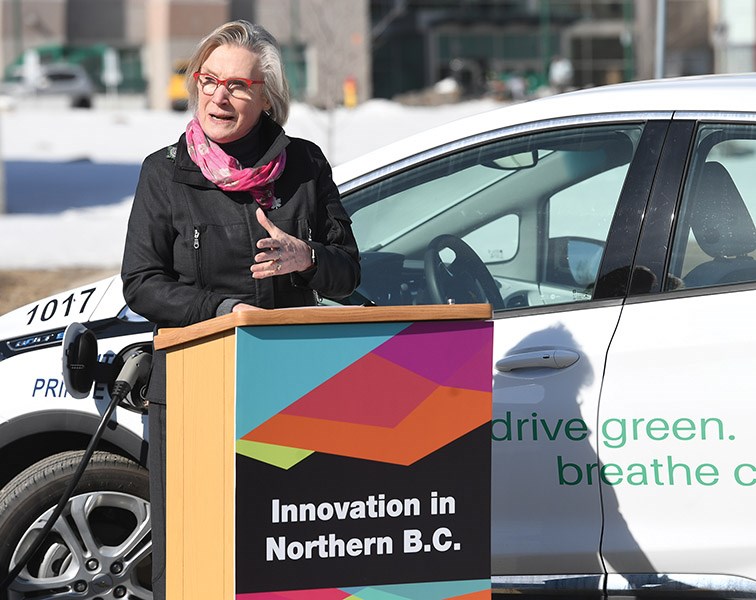Federal cabinet member Carolyn Bennett played up her government's plan to put more zero-emission vehicles on the road when she was in Prince George on Friday.
She outlined a two-pronged strategy beginning with a rebate of up to $5,000 to purchase a vehicle powered by an electric battery or hydrogen fuel cell and with a price up to $45,000.
$300 million over three years has been committed to that program.
Added to that, businesses who buy them will be eligible for a full write off on their capital cost allowance in the year of purchase, compared to 30 per cent per year allowed for gas-fueled vehicles. And the limit will be $55,000 plus sales tax, up from $30,000.
"This can become a hugely, hugely important incentive for fleets to change over to zero-emission vehicles," Bennett said during a media event at the University of Northern British Columbia.
In answer to a concern the $45,000 cap will limit the choice of vehicles people can purchase and still get the incentive, Bennett said those looking at pricier vehicles, "probably don't need the rebate to make that choice."
However, she said it's possible the made-in-Canada Chrysler Pacifica minivan could be included at a future date.
The incentive was included in the federal budget released earlier this month, as was a $130-million commitment over five years to establish more charging stations across the country. It comes on top of $182.5 million committed to that cause in previous budgets.
"We want to make it easier for Canadians to make greener choices by making it more convenient to use electric vehicles," Bennett said, speaking from a podium placed between two electric-powered vehicles and in front of one of the two charging stations on the UNBC campus.
Suzanne Goldberg of ChargePoint, who also attended the event, said a target for the number of charging stations the $130 million should deliver has not yet been set but the previous commitment of $182.5 million was to support about 900 of them.
The aim is to have all vehicles sold in Canada being zero-emission by 2040. In the lead up, gas-free vehicles would make up 10 per cent of market by 2025, and 30 per cent by 2030 under the strategy.
The transportation sector accounts for 25 per cent of Canada's greenhouse gas emissions and three-quarter of that come from trucks, cars and commercial vehicles, Bennett said.
On the controversy over former Justice Minister Jody Wilson-Raybould's claim she was unduly pressured to intervene in the criminal case of SNC-Lavalin, Bennett maintained it came down to a difference of opinion over two legal options.
"We're sorry that she felt that she needed to resign from cabinet, it was an important voice at that table but all of the Indigenous caucus members are really important to how we go forward and we need that perspective and view," she said.



